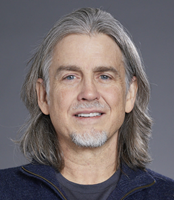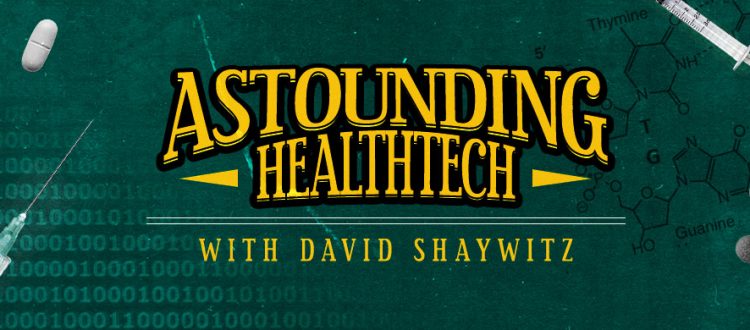Precision Health’s Next Great Challenge: Behavior Change

David Shaywitz
Humility may not be the first word you associate with “genetics,” “precision medicine,” and “Harvard,” but it was unquestionably the theme of the day at a fascinating panel this week convened by the Harvard Data Science Initiative.
The discussion (video here), was remarkably grounded. It reflected hard-earned learnings from experts who have tried to implement data-driven, “precision” health solutions outside the academy, and had scars to show for it.
Five themes stood out for me in this conversation:
- Appreciation for the successes of “precision medicine” – particularly in some cancers as well as in some monogenetic diseases;
- Recognition of the limitations of precision medicine – i.e genetics are often just not that determinative, and generally are not especially useful or impactful in the prevention and management of disease;
- Emphasis on the underappreciated implementation challenges associated with driving innovation into practice;
- An urgent plea for improved approaches for the identification and effective treatment of mental health conditions;
- A powerful sense that a key opportunity for improving health is the development of improved, ideally more precise, approaches to durable behavior change.
Because readers are likely familiar with my extensive discussion of precision medicine over the last 10+ years, I’m going to focus on the last three topics: implementation challenges, the mental health need, and behavior change opportunities.
Implementation Challenges
Tremendous advances in our scientific understanding and in the technologies we can deploy have invigorated researchers seeking to apply these advances to the study and treatment of human disease. Yet the gap between theory and practice remains wide.

Priti Hegde, chief scientific officer, Foundation Medicine
Foundation Medicine Chief Scientific Officer Priti Hegde described an early experience she had when she started out in the pharmaceutical industry at Genentech.
”We had this vision,” she said. “We should collect data from every patient on our clinical trials, and that data will transform drug discovery.”
So what happened?
“You won’t believe it, but it took us over five years just to get systems in place where datasets can be put in place in a manner that allows us to analyze data; that we need to have cloud compute architecture, that we need to have data access policies. These things may be kind of boring for a scientist, but critically important for us to get to a place where we can actually start to analyze the data and make something out of it.”
(As I’ve written, the challenges Hegde saw have also been publicly discussed at Novartis – see here, here – and Lilly – see here.)
Hegde has taken this understanding to her current role. “At Foundation Medicine, I realized I can innovate ‘til the cows come home. But if the insurance providers don’t see value in what we’re doing, and if we can’t demonstrate value for patients, there is no point in innovating. So it always comes down to the practical, boring, mundane things that drive true innovation.”
(For more on the importance of implementation see here, here, here.)
Harvard’s Mark Namchuk, a pharma veteran, also spoke eloquently, and plaintively, about the challenges of moving from the “pristine biology” of the lab to the complexities of clinical trial design and execution. “There’s this practical world that you’re going to run into,” he explained, and urged students and trainees considering careers in translation to seek out the perspective of experienced clinical trialists.
Duke bioinformatician Jessie Tenenbaum, who is Chief Data Officer for the North Carolina Department of Health and Human Services, also highlighted the need for pragmatism.
“It’s the implementation,” Tenenbaum said. “It’s how do you build that into a workflow that’s extremely entrenched with clinicians and providers and genetic counselors and everyone doing what they do? Make sure to get it in front of them in a way that’s going to be digestible in the busy day that they have.”

Jessie Tenenbaum, Duke University; chief data officer, North Carolina Department of Health and Human Services
Tenenbaum also emphasized actionability – “what do we do” with the information, which requires a consideration of context.
Tenenbaum shared an example from earlier in her career, when the genetics of warfarin metabolism were elicited. “When I was in grad school and learning about pharmacogenomics,” she said, warfarin was “the poster child for success” as researchers “figured out the genes and figured out the clinical guidelines based on the genes.”
Her big revelation came afterwards, however, when she was at Duke. It arrived courtesy of cardiologist Rob Califf (who President Biden recently nominated to serve, for the second time, as Commissioner of the FDA).
As Tenenbaum tells it, Califf “made me get up at some ungodly hour, to round with him, to see the patients and how this [warfarin management] really worked. There was someone who was about to be prescribing warfarin, and Dr. Califf asked the doctor “did you think of doing the genetic test?”
No, the doctor replied.
The patient “was an elderly person, had many other complicating factors…genetics just didn’t even play a role,” Tenenbaum recalled.
(Indeed, most clinicians have found that dosing warfarin empirically, following the traditional “go low, go slow” advice, works well — especially since at least half the variation in dosing seems to depend upon factors besides the two genes implicated in warfarin metabolism.)
The point: it’s great to appreciate the ideal and abstract elegance of precision medicine, but to deploy it effectively, you also need to grapple with the messy reality of clinical care.
The Mental Health Crisis
One particularly concerning reality of contemporary clinical care is the expanding mental health crisis sweeping the country in the wake of the pandemic.
The impact on children, in particular, was emphasized poignantly by Zak Kohane, a pediatric endocrinologist by training, who now chairs Harvard’s Department of Biomedical Informatics.
“There is an unbelievable disaster happening in pediatric mental health right now,” Kohane explains. “Our local hospital [i.e. Boston Children’s Hospital] is not accepting elective admissions — not because of COVID, not because of trauma, but because our psych wards are overflowing. And this is, by the way, not just us. It’s nationwide.”
Tenenbaum shares Kohane’s sense of urgency. Her research has focused on mental health, and she’s edited a forthcoming book, Mental Health Informatics.
She points to several challenges in applying technology to mental health.
First, she notes that “as opposed to cardiology, where we kind of understand how the heart works and how to quantify that, there’s just different epistemology of understanding what is knowledge.”
She adds, “There are different concepts. They’re all self-reported and subjective, as opposed to something we can quantify. So there’s a huge number of challenges in that space.”
(There are some fledgling academic and industrial efforts to bring more quantitative data analysis to neuroscience R&D; see TR coverage of Neumora Therapeutics, Oct. 2021)
Tenenbaum also highlighted the profound need, in her current role in public health in North Carolina, to address mental health. It’s hard to make strides when essential data infrastructure is missing, she said.
When she started the role, she explains:
“We think about the sexy predictive analytics, machine learning, what can we do? And you get in and realize, ‘Oh my gosh, they’re using faxes, that’s where we’re at that.’ So data IT infrastructure, governance, quality automation — those are the things we need to get into place first, and then ask me next year about what we’ve managed to do with mental health and public health.”
Tenenbaum hastens to add that many of the challenges in public health stem from efforts that “have been drastically underfunded for decades,” and notes that much of the fax reporting has now been automated.
John Quackenbush, a computational biologist at Harvard, also emphasized the unmet need represented by mental health, and expressed hope for the opportunities represented by “digital phenotyping,” a topic under investigation by the Onnela lab at the Harvard School of Public Health.
The Onnela lab, Quackenbush said, was initially interested in the promise of wearables for neuropsychiatry, but more recently has focused on leveraging the passive data collected by smartphones. (I am somewhat cautious about this – multiple mental health startups were founded based on this exact principle, yet to the best of my knowledge, most ultimately pivoted away from it.)
Precision Behavior Change?
There was a strong emphasis from the panel on the urgent need to motivate healthier behaviors – precision behavior change, perhaps – but very little sense of how this can be done effectively, especially at scale.
All the panelists pointed out that for most people, you don’t need fancy assays to tell you how to live a healthy life. As Tenenbaum, put it, “I can tell you based on your genome what you should do. Eat right and exercise.”
Harvard’s Quackenbush tells me he offers people similar actionable advice based on their genomes: “Eat well, exercise, maintain a healthy weight, and don’t smoke.”

John Quackenbush, computational biologist, Harvard University
Obviously, we don’t need a genome sequence to tell us this.
Likewise, Namchuk emphasizes the lack of utility of microbiome analysis. He explains, “People are fascinated with the microbiome. I find the microbiome both fascinating and unbelievably frustrating because I have no idea what to do interventionally with the microbiome.”
Adds Tenenbaum, “So much of it comes down to eat right and exercise. And people can know that. And that doesn’t mean they’re going to do those things…we know in America there’s an obesity epidemic and we all know what we’re supposed to do, and it didn’t prevent myself and others I know from putting on that weight during COVID.”
The challenge, Tenenbaum says, is “figuring out the precision way to get people motivated to do it. I don’t know if we’ve cracked that nut yet.”
As Harvard’s Kohane summarizes:
“The sort of behavioral characteristics that we’re trying to modify turn out to be very hard. We don’t do it. Facebook knows a lot more than most of us know about how to modify behavior [see my discussion of ad-tech for health here], but the healthcare system doesn’t know how to modify behavior. Health insurance companies don’t know how to modify behavior. They’ve tried all sorts of incentive programs for cigarette smoking, weight loss, and we just don’t know how to do that, and we’ve failed at scale.”
He adds, provocatively: “Do we have enough leverage to do behavior modification … or should we just say, you know, humans are weak-willed individuals, and if we really want to combat the biggest epidemic in our lifetime, namely obesity, we’re going to have to go pharmacologic?”
The takeaway: for most people, the key to improved health isn’t a diet or exercise program based on specious conclusions from sequencing your genome, analyzing your microbiome, or surveilling your smartphone. Rather, it’s figuring out how to motivate people to adopt and stick with basic healthy living behaviors.
It’s really about consistent coaching, guiding people to lead healthy lives – in a customized fashion that maximizes the chances of success.
Companies like Omada Health, Virta Health, Noom, and Precision Nutrition, among others, are aspiring to do variations on this theme. (Disclosure: I’ve recently reviewed course materials for Precision Nutrition.) The challenge, from a business perspective, is finding a way to combine the power and value of one-on-one interactions with the technology that offers the potential for additional insight as well as the promise of solutions at scale.
Hence health’s multi-billion dollar question: can technology truly enhance the power of health coaches, enabling health coaching to scale while providing customized insights and improving adherence? Or will the efficacy of health coaching inevitably be reduced and diluted in the insatiable drive to achieve exponential growth?
Our future health may depend on how this question is resolved.





